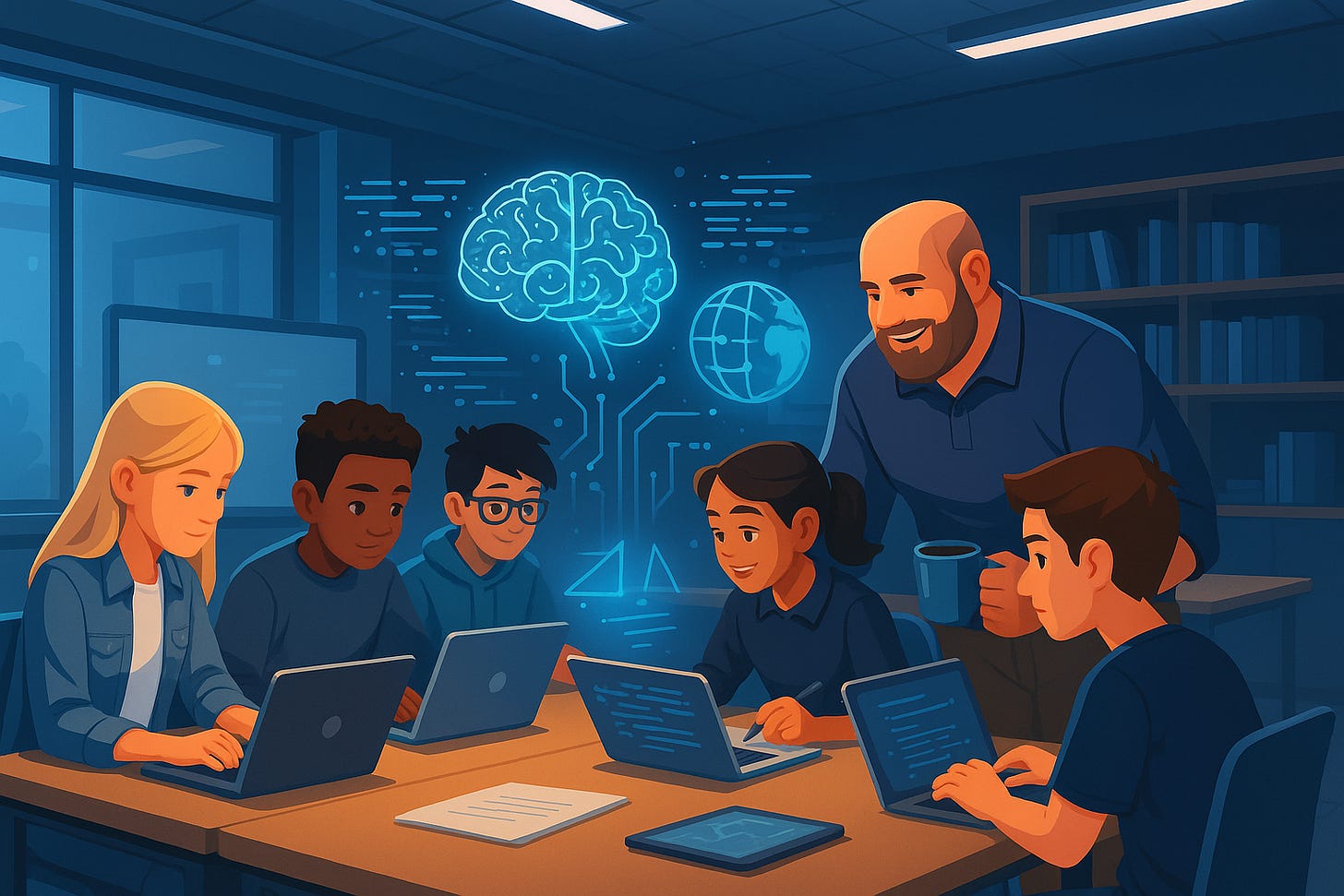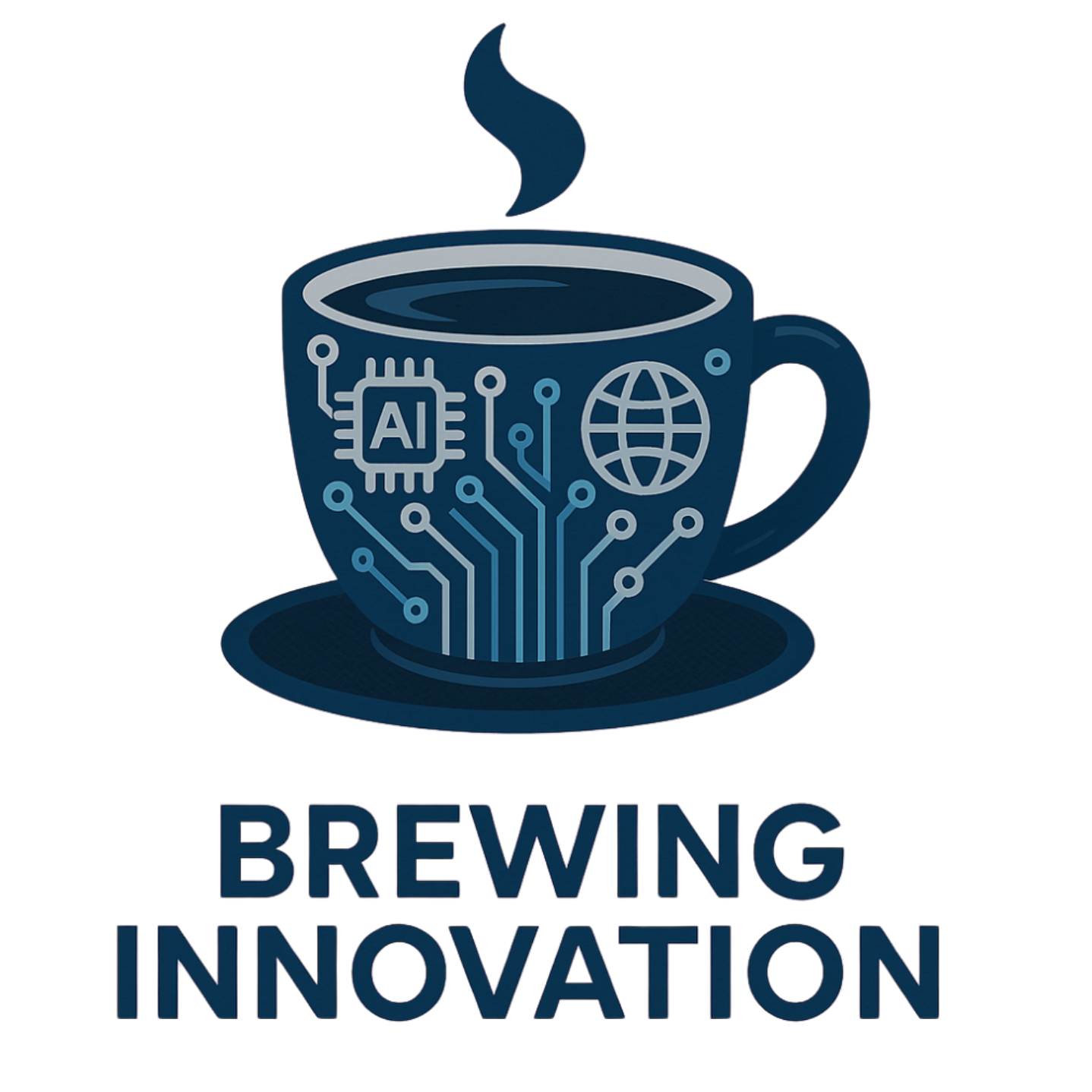The Paradox of AI: Why Students Need Teachers More Than Ever
AI can give information, but only teachers can help build resilience and wisdom
“In the age of AI, there’s a paradox. With infinite knowledge just a click away, students don’t need teachers less, they need them more. They need teachers to challenge them, believe in them, and push them to do hard things now that are good for them later. This is the work of education, and it’s more important than ever.” – Angela Duckworth
The AI Paradox in Education
For generations, education was largely about access. Who had the books? Who had the best teacher? Who had the library card?
Now, access is no longer the bottleneck. Knowledge is everywhere. Students can pull out their phone, type into ChatGPT, and instantly get a step-by-step explanation of algebra, a draft of a history essay, or even a personalized study plan for their next exam.
So if students can “learn” anything on their own… what’s left for teachers to do?
That’s the paradox Angela Duckworth is pointing to: the more powerful our tools become, the more essential human teaching becomes.
Why Teachers Matter More Than Ever
AI can supply information, but information alone does not transform. Students don’t just need answers—they need belief, challenge, and accountability.
Here’s what teachers do that AI cannot:
Teachers see potential before students see it in themselves. A chatbot can give feedback, but it can’t read a student’s body language and say, “I can tell you’re close, don’t give up now.”
Teachers create conditions for struggle. Learning is not supposed to be easy. Wrestling with hard things builds character, resilience, and confidence. AI often tempts students toward shortcuts; teachers help them take the long road when it matters.
Teachers teach beyond content. Empathy, grit, perseverance, teamwork, and ownership, none of these can be downloaded from the internet. They are caught, not taught, through human relationships.
This is why, despite AI’s incredible capabilities, students don’t need fewer teachers. They need teachers who lean harder into their most human work.
The Hard Work Students Need
Think back on the moments that shaped you. Chances are, they weren’t moments of ease.
Writing and rewriting a paper until it was finally good enough.
Running drills long after practice ended.
Standing up to present when you would rather sink into the back row.
Those were the moments that built you. And almost always, a teacher or coach was there pushing, encouraging, and refusing to let you settle for less.
This is the “hard thing” Angela Duckworth describes. Education at its best is not about making life easy. It’s about preparing students for a world that will demand courage, creativity, and resilience.
AI can offer shortcuts, but it can’t develop character. That’s the sacred role of teachers.
Where AI Fits In
If this sounds like I’m down on AI, I’m not. In fact, I believe AI has the power to strengthen—not weaken—the role of teachers.
Here’s how:
Time saver: AI can take tedious tasks off a teacher’s plate—drafting lesson materials, summarizing data, or generating practice problems—so teachers can spend more time in meaningful interaction with students.
Amplifier of feedback: AI tools can give students quick, low-stakes practice and feedback, freeing teachers to focus on higher-level conversations about thinking, choices, and effort.
Equity booster: For students who need extra scaffolding, AI can provide personalized supports—allowing teachers to step in as mentors, not just content deliverers.
The best use of AI isn’t to replace teachers. It’s to give teachers more bandwidth to do the irreplaceable work of challenging, believing, and mentoring.
Takeaway
Angela Duckworth’s paradox captures where we are right now in education.
Knowledge is everywhere.
AI can do more than we imagined five years ago.
But students still need teachers—more than ever.
If schools are serious about thriving in the age of AI, we need to double down on what only teachers can do:
Create cultures of high expectations and deep belief.
Push students to attempt the hard things that shape their future selves.
Build human connections that transform information into wisdom.
Because at the end of the day, education has never just been about what you know.
It has always been about who you become.
Stay Caffeinated. Stay Curious. ☕




